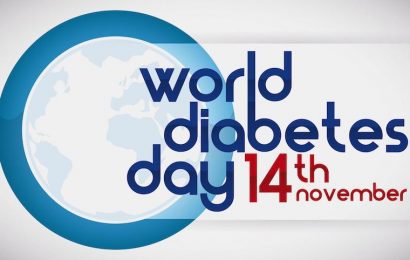Fat has long been demonized in medical and dietary circles, for a variety of reasons. For decades, as a recent Time magazine cover story pointed out, saturated fat in particular has been singled out as a cause of heart disease — an association that some dietary experts believe has been exaggerated. Trans fats — created in the process of partially hydrogenating oils, resulting in an artificial fat that is often used as shortening, for frying, or as a food additive — has been identified as detrimental to cardiovascular health and should be avoided entirely. At the same time, all fat has been portrayed as potentially harmful because it is a concentrated source of calories: 9 calories per gram, compared with 4 calories per gram of protein or carbohydrate. Due to the health benefits of weight control, people with diabetes — Type 2 diabetes in particular — are often advised to limit their fat intake, in addition to watching their intake of refined sources of carbohydrate. A new study, however, adds to a growing body of evidence that dietary fat may not be the enemy of people with diabetes.
The study, published earlier this month in the journal Diabetes Care, examined the effects of canola oil in the diets of 141 people with Type 2 diabetes, all of whom took oral diabetes drugs. Some participants were assigned to the study group, in which case they were given a canola oil–enriched bread supplement and counseled on how to follow a low–glycemic load diet. All other participants were assigned to the control group, in which case they were counseled on following a whole grain–based diet and given a whole-wheat bread supplement. According to an article on the study at MedPage Today, after three months, participants in the canola oil group had experienced an average drop in HbA1c (a long-term measure of blood glucose control) of 0.47%, compared with a drop of 0.31% in the whole-wheat group. Members of the canola oil group also lowered their Framingham risk score (a measure of cardiovascular risk based on cholesterol levels and blood pressure, among other factors) by 0.6 percentage points more than the whole-wheat group.
Other studies have also found glucose-lowering or diabetes-fighting benefits from including certain kinds of fat in the diet. Earlier this year, a Spanish study found that among adults at high risk for cardiovascular disease, following an olive oil–rich Mediterranean-style diet reduced the chances of developing Type 2 diabetes by around 40%, compared with following a low-fat diet. Another study from earlier this year found that among overweight or obese people with Type 2 diabetes, eating a large breakfast rich in fat and protein lowered HbA1c by an astounding average of 4.62%, compared with 1.46% in a small-breakfast control group. But there is opposing evidence when it comes to fat and glucose control: A 2006 study found that a low-fat vegan diet lowered HbA1c by 0.96% in a group of participants with Type 2 diabetes, compared with 0.56% in a group following the dietary recommendations of the American Diabetes Association.
What’s your take on the relationship between dietary fat and blood glucose control — have you noticed a pattern in your own diet? If you’ve found fat to be helpful in controlling blood glucose levels, has it been helpful (or harmful) in other areas, such as weight control or managing cholesterol levels? Have you found nutrients other than fat, such as protein or fiber, to be helpful in maintaining blood glucose control? Leave a comment below!




